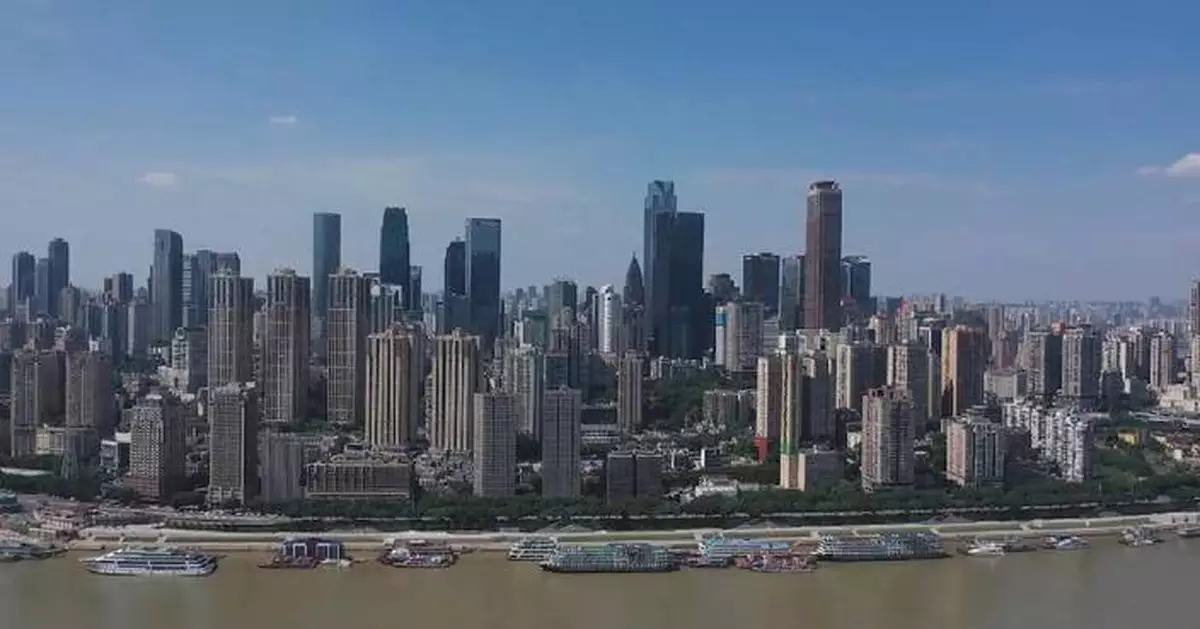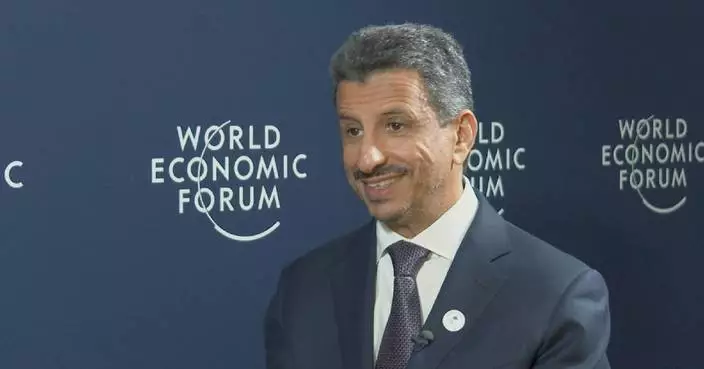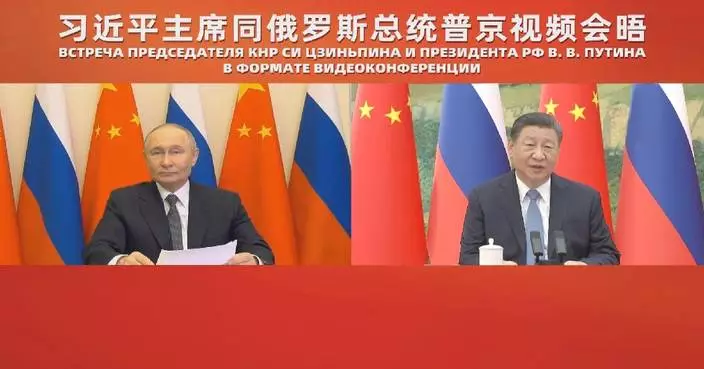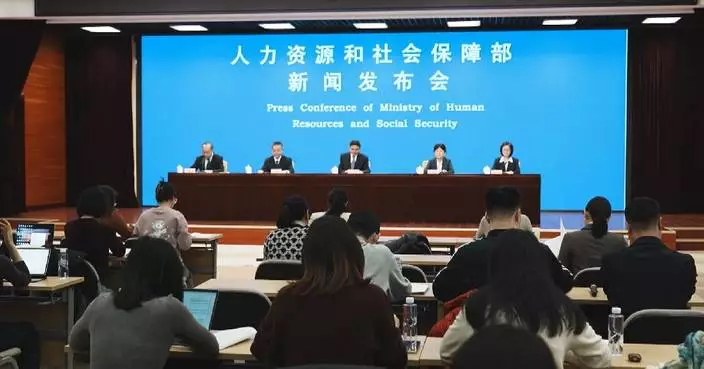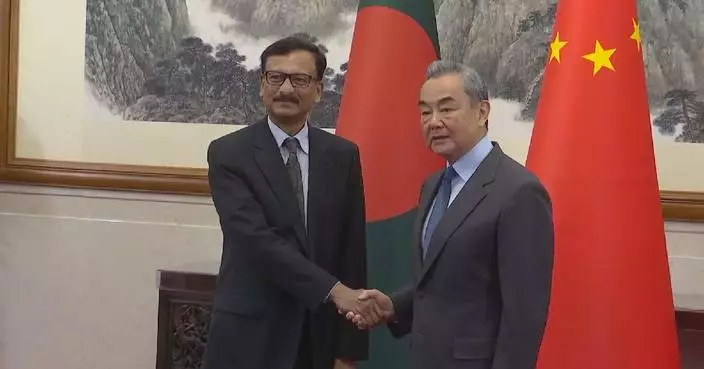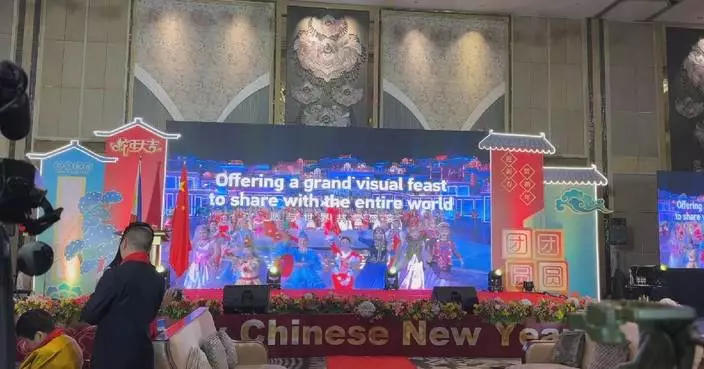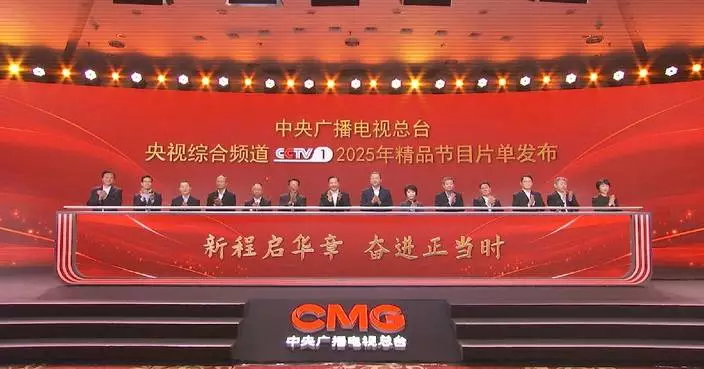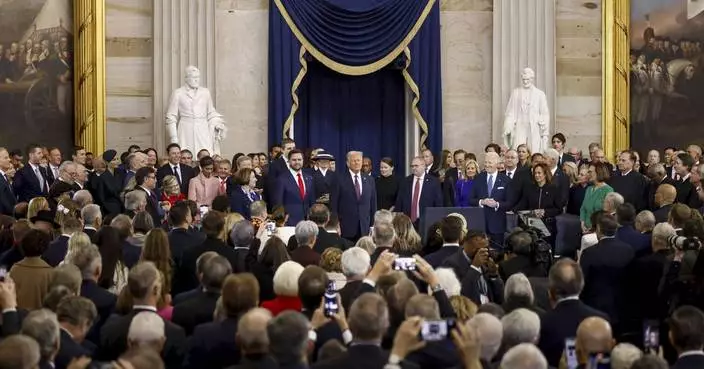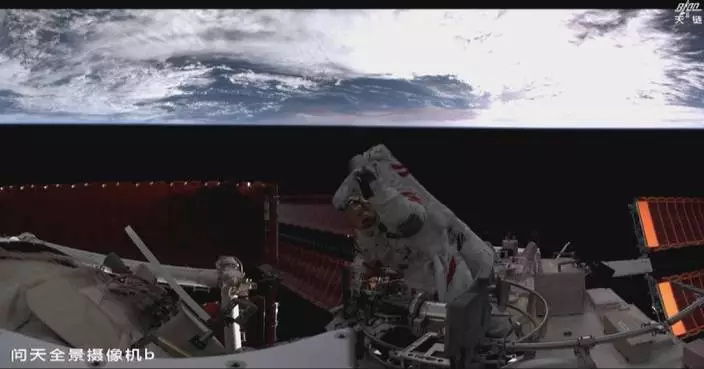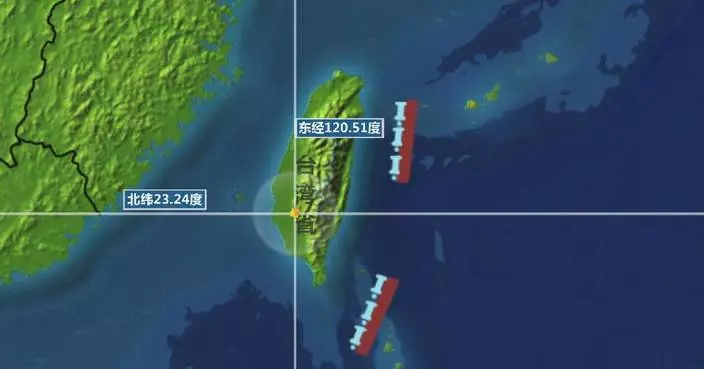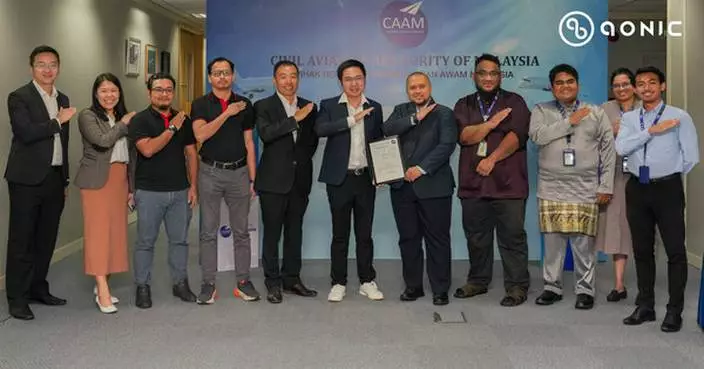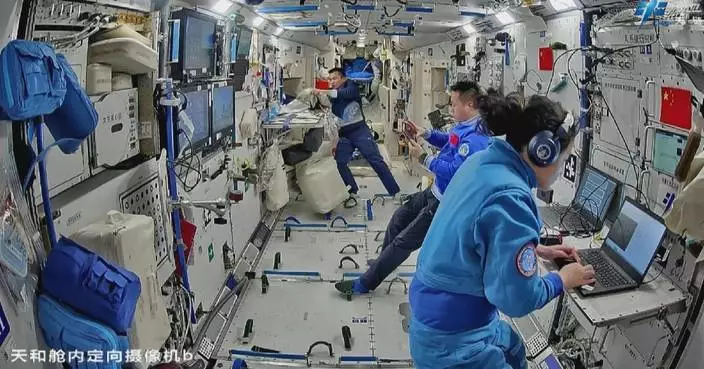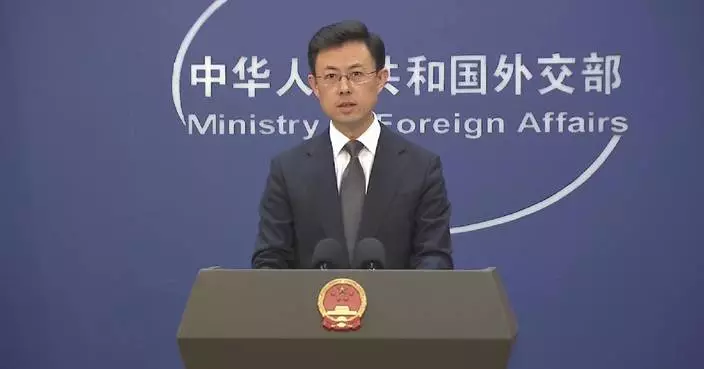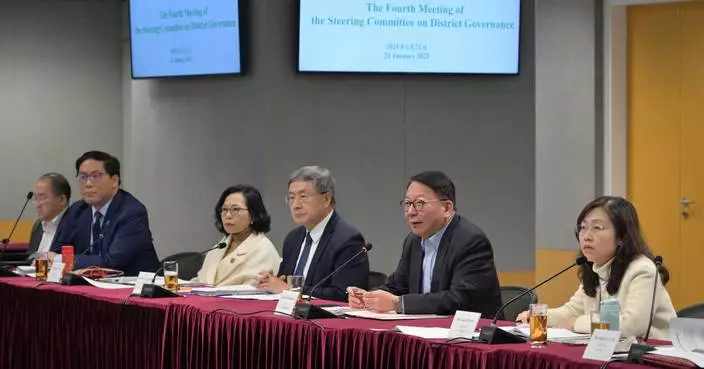Sichuan Province and neighboring Chongqing Municipality in southwestern China are emerging as dynamic regions in opening up and high-quality development as comprehensive reform deepens.
The Third Plenary Session of the 20th Central Committee of the Communist Party of China (CPC) made systematic arrangements for improving the implementation of a regional coordinated development strategy and proposed to push forward the construction of the economic circle between Chongqing and Chengdu, capital of Sichuan, in depth and in a practical manner.
Among the fruitful results of the economic circle construction, the Sichuan-Chongqing Gaozhu New Area, located at the junction of Sichuan and Chongqing, is the first inter-provincial new area in China.
The government service hall of the new area, jointly operated by Sichuan and Chongqing, offers a one-stop platform for more than 100 services, providing great convenience for enterprises and residents in the region.
At present, the number of enterprises settled in the new area has doubled compared to when it was established in 2020, with an automotive equipment industry cluster being formed, demonstrating the benefits of the economic zone.
Chinese President Xi Jinping has given important instructions on many occasions on the coordinated development of the two places, and highlighted that the construction of the Chengdu-Chongqing economic circle is a major strategic decision made by the CPC Central Committee, and the two places should work closely together to continuously improve their development capabilities.
As a result, Sichuan and Chongqing have accelerated the gathering of strategic scientific and technological forces and consolidated industrial foundations in various sectors.
They currently share more than 13,000 large-scale instruments and pieces of equipment, have planned and built 11 major national scientific and technological infrastructures, carried out 219 original and disruptive technology research projects, and signed technology contracts exceeding 280 billion yuan in value (about 39 billion U.S. dollars).
In the first half of this year, Sichuan and Chongqing implemented 300 major co-construction projects, with an investment of more than 240 billion yuan (about 33.5 billion U.S. dollars).
Sichuan and Chongqing are accelerating the construction of a modern industrial system, jointly building an important national advanced manufacturing base and four trillion-yuan level industrial clusters of automobiles, electronic information, equipment manufacturing, and specialty consumer goods.
Since the beginning of this year, the automobile industry in Sichuan and Chongqing has continued to expand and is now the third largest automobile industry cluster nationwide, with 45 complete vehicle companies and more than 1,600 supporting suppliers. Sichuan and Chongqing's automobile production volume together accounted for 11 percent of the national total, with over 80 percent of it supported independently by the region on auto parts.
"We have actively responded to the strategic deployment of the construction of the Chengdu-Chongqing twin-city economic circle, seized new opportunities for the coordinated development of the automobile industries in the two places, given full play to Mianyang City's unique advantages in scientific and technological talents, electronic information, and high-end equipment, and helped accelerate the formation of a high-level research and development and manufacturing base for new energy and intelligent connected vehicles in Sichuan and Chongqing," said Wang Changfei, chief of the automobile industry section at the Mianyang Municipal Bureau of Economy and Information Technology of Sichuan Province.
The Sichuan-Chongqing integrated development has also fostered a better quality of life for local residents, building inter-provincial transportation infrastructures and launching 311 joint services covering matters of public concern, such as employment, social security, medical treatment, and provident funds.
The processing time for "one-stop" household registration transfer across provinces and cities in Sichuan and Chongqing has been shortened to as fast as 10 minutes, more than 70 percent of the major medical institutions in Sichuan and Chongqing have achieved mutual communication and recognition of electronic health cards, and 28,500 designated medical institutions for cross-provincial medical insurance settlement have been opened.
Six railway corridors have been built between Sichuan and Chongqing, the construction of four high-speed railway routes linking major cities in Chongqing and Sichuan is underway, and 21 expressways have been built or are under construction in the region.
The Bazhong-Nanchong high-speed railway was officially opened for operation in June, shortening the travel time from Sichuan's Bazhong City to Chengdu and Chongqing to around two hours.
"It is very convenient for us to travel to Chengdu. Whether it is driving on the highway or taking the high-speed railway. There are several train stations nearby to choose from. We can book train tickets just one hour in advance on our mobile phone. The development of transportation is very fast," said Liu Hanming, a resident in Chongqing.
Chongqing and Sichuan will empower each other and develop in the same direction to accelerate the construction of an important economic center with national influence, a science and technology innovation center, a new frontier of reform and opening up, and a livable place with high-quality life, according to local officials.
"We will thoroughly study and implement General Secretary Xi Jinping's important instructions and requirements, focus on the reform tasks deployed by the Third Plenary Session of the 20th CPC Central Committee and push forward the deepening and expansion of regional integration to a deeper level and broader areas. We will accelerate the creation of landmark reform achievements that are distinctive to Sichuan and Chongqing and have national influence, and make new contributions from Sichuan and Chongqing to the overall national reform cause," said Mi Benjia, deputy director of Chongqing Municipal Development and Reform Commission.
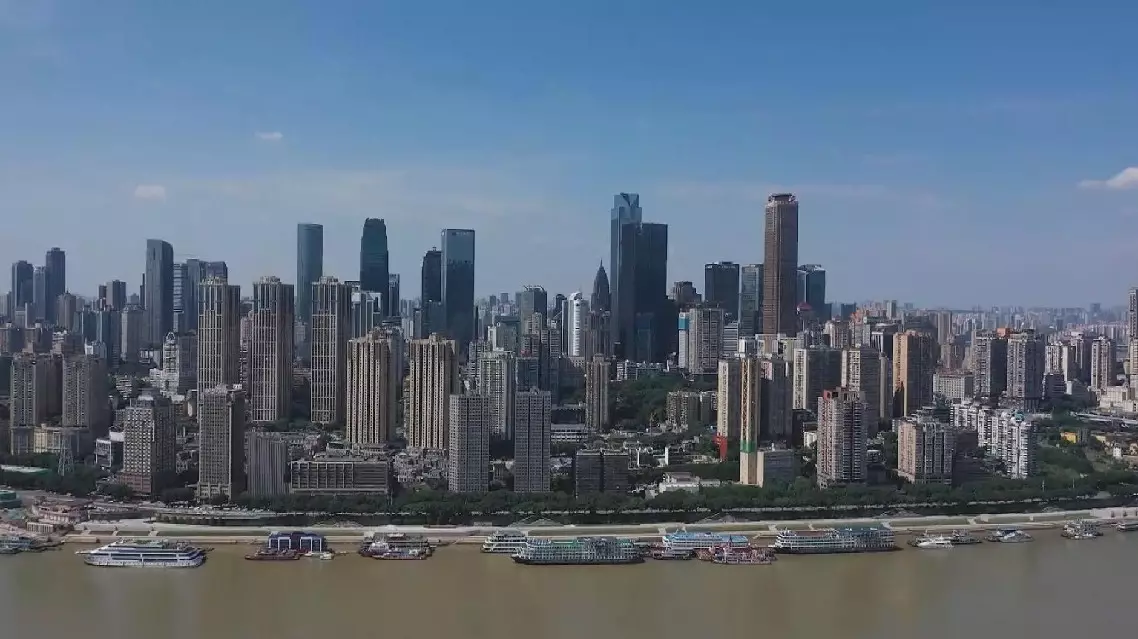
Sichuan, Chongqing embrace coordinated high-quality development as reform deepens


